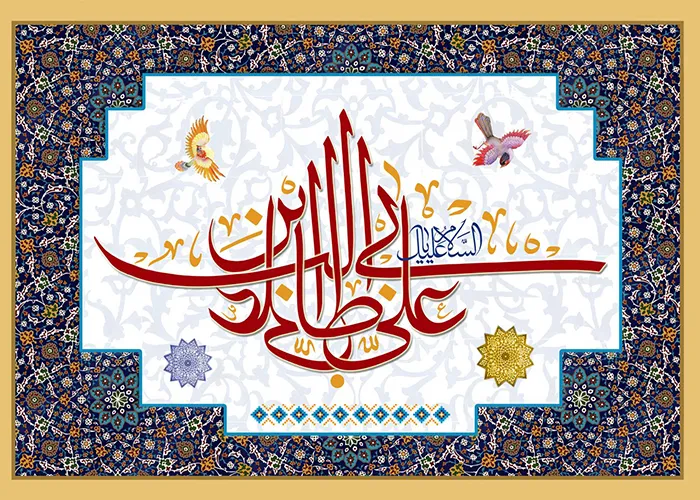Hadith Of The Week – Volume02 Issue02
Partners in Injustice: A Lesson from Imam Al-Jawad (A)
Introduction
On the 10th of Rajab, we celebrate the auspicious birth of Imam Muhammad Al-Jawad (A), the ninth Imam of Islam, a paragon of wisdom, piety, and justice. Despite his youth, Imam Al-Jawad (A) illuminated the path of righteousness for all, emphasising the importance of standing against injustice in all its forms. His teachings resonate deeply in a world often fraught with oppression and inequity.
One of his profound sayings is a timeless reminder of the responsibility we bear in the face of injustice. This article delves into the educational messages of this hadith, offering insights for young people, parents, and religious leaders alike.
قالَ الامام الجواد(ع): الْعامِلُ بِالظُّلْمِ وَالْمُعینُ لَهُ وَالرّاضی بِهِ، شُرَكاءٌ
Imam Al-Jawad (A) said: “The one who commits injustice, the one who aids it, and the one who approves of it are partners in the injustice.”
Educational Messages of the Hadith for Young People
Message 1: Avoid Spreading Unverified Information
In an age of social media, sharing unverified claims or false narratives can unknowingly make one complicit in injustice. Believing or disseminating information without certainty of its truth aligns one with the oppressor as an aider.
Challenge:
Before sharing any post or story, investigate its authenticity. Ask yourself: “Could this harm someone if it’s untrue?” Commit to stopping the spread of misinformation in your networks.
Message 2: Stand Against Injustice
When witnessing injustice, remain neither silent nor indifferent. Approval can manifest in various forms: contributing to the wrong, failing to abhor it internally, remaining silent about it, or neglecting actionable steps to reduce or eliminate it.
Challenge:
Identify one social issue in your community where injustice prevails. Take a practical step to counter it, whether by raising awareness, joining campaigns, or offering direct assistance to the victims.
Educational Messages of the Hadith for Parents
Message 1: Teach the Impact of Injustice
Discuss the dangers and consequences of injustice with your children, embedding in them an aversion to wronging others. Explain how injustice harms not only its victims but also its perpetrators.
Challenge:
Share a real-life story of someone who faced the repercussions of committing or enabling injustice. Use it as a conversation starter to inspire empathy and fairness in your children.
Message 2: Model Justice in Your Actions
Children often learn by observing their parents. If parents act unjustly, whether in small or significant ways, it normalises such behaviour for the next generation. Parents must also remember that injustice rebounds, affecting the entire family in unexpected ways.
Challenge:
Reflect on your own actions in the family and workplace. Identify and rectify any behaviour that could be seen as unjust, even if unintentional.
Educational Messages of the Hadith for Imams and Religious Leaders
Message 1: Share Stories of Consequences of Injustice
Illustrate the outcomes of injustice with historical and contemporary examples. Narratives about those who committed, aided, or approved of injustice—and their subsequent downfalls—can leave a lasting impression on audiences.
Challenge:
In your next sermon, include a story about a tyrant who faced divine or societal retribution. Connect it to the everyday injustices people encounter and how to avoid complicity.
Message 2: Educate on the Types of Injustice
Elaborate on the three main types of injustice—against others (Haq al-Nas), against Allah (Haq Allah), and against oneself (Haq al-Nafs). Provide relatable examples for each to ensure your audience understands their scope and implications.
Challenge:
Host a community workshop to discuss how these types of injustice manifest in daily life. Encourage participants to share personal experiences and collaboratively identify solutions to combat them.
Last Word
The words of Imam Al-Jawad (A) serve as a moral compass, urging us to examine our actions, choices, and even our silence. Injustice, in all its forms, spreads like a wildfire, consuming not only its victims but also those who enable or endorse it. As individuals, parents, and leaders, we hold the power to extinguish these flames through awareness, education, and action.
This hadith reminds us that justice is not a passive virtue; it demands courage, vigilance, and an unwavering commitment to righteousness. Let us honour his legacy by embodying these values in our lives.
news via inbox
Subscribe to the newsletter.




